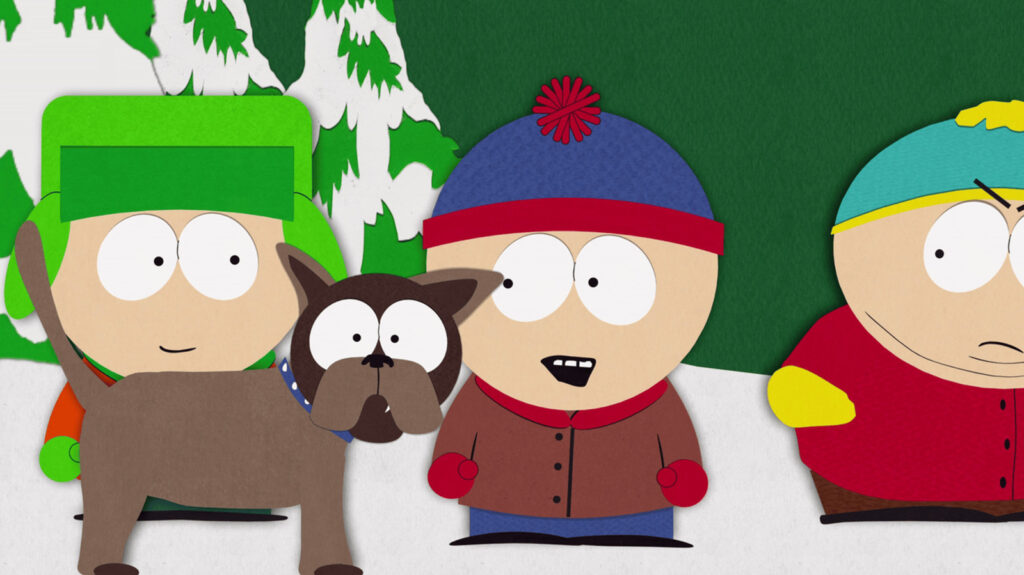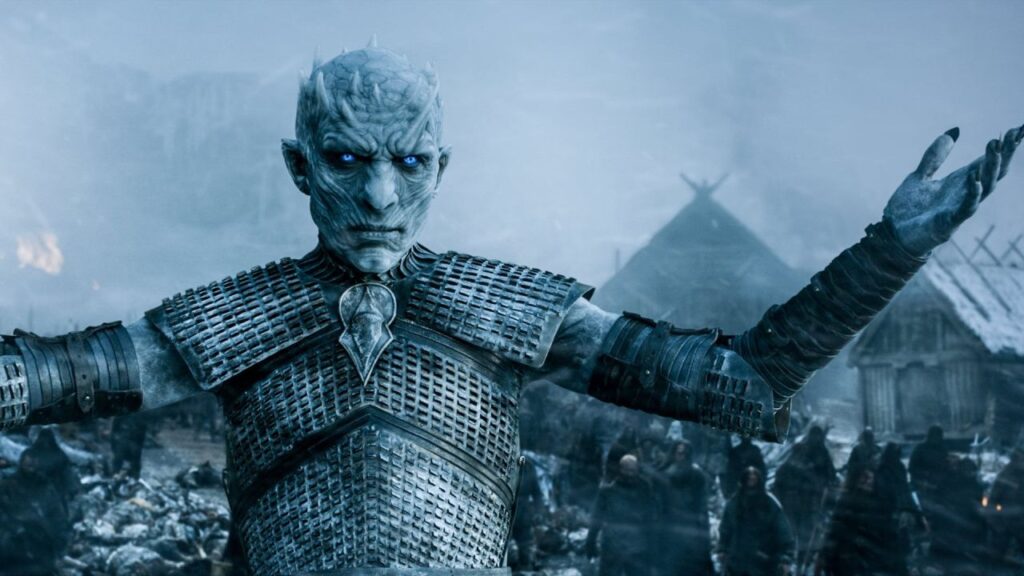
In the “South Park” episode “Big Gay Al’s Big Gay Boat Ride,” Stan (Trey Parker) gets a brand-new dog that he named Sparky. Stan loves Sparky, and Sparky is well-trained, loyal, and friendly. Stan, as any dog owner might, becomes slightly distressed when Sparky meets other dogs and humps them in public. Stan’s friends notice, however, that Sparky is only humping other male dogs and, in that childish, homophobic way, laughing at Sparky’s potential queerness. The characters are all eight years old, however, and live in a pretty small community in 1997, so their knowledge of queerness is quite limited.
Stan asks his teacher, Mr. Garrison (Parker) what it means to be gay, and the terrified and repressed teacher announced right to Stan’s face that queer people are evil. Stan, overwhelmed and scared, flees. At home, Stan idly laments aloud that his dog is gay, internalizing his teacher’s bigoted message. Sparky overhears Stan and runs away. Sparky somehow comes to an animal shelter in the woods … an animal shelter for rejected gay animals. It’s run by a character named Big Gay Al (Matt Stone).
Early episodes of “South Park” bank on stereotypes, and a lot of the show’s “shock” humor remains shocking to this day, but the ultimate message of “Big Gay Al’s Big Gay Boat Ride” is one of tolerance. Stan accepts Sparky for who he is, and they end the episode happy and together again. It was rare for a mainstream TV series, especially an animated one, to so frankly discuss queer themes in 1997. Despite the stereotypes, the episode was revolutionary in its way, nominated for an Emmy Award and a GLAAD Award.
In a strange casting coup, Sparky’s barks and growls were provided by George Clooney.
George Clooney provided the barks and whines of Stan’s dog, Sparky
One might recall that every episode of “South Park” opens with a disclaimer that all the celebrities who appeared on the show were merely bad impersonators. In the case of Clooney, show creators Stone and Parker wanted to include the famous actor on their show, but not in a flashy way. According to the episode’s DVD commentary track, Parker and Stone noted that they wanted “South Park” to be different from “The Simpsons” in this regard. “The Simpsons” frequently had prominent celebrity guests, and often featured famous people playing themselves. “South Park” always aimed to take the piss out of the very notion of celebrity, and Parker and Stone regularly mocked famous people merely because they were famous. Remember when Barbra Streisand turned into a giant mechanical monster and fought Leonard Maltin and Sidney Poitier?
Parker’s ethos: “Let’s have celebrities on, and let’s have them do minor, unimportant things.”
As an antidote to the “Simpsons” celebrity cameos, they offered Sparky, a non-speaking role, to Clooney. Clooney said yes, as he had long been a fan of “South Park,” since even before its debut. Stone recalled that Clooney was a fan of their 1995 short film “The Spirit of Christmas,” and the actor’s proliferation of their short — attached to his Christmas cards — was a big reason the muckety-mucks in Hollywood knew who Stone and Parker were. “The Spirit of Christmas” was one of the earlier viral memes to gain power in the age of the internet.
Clooney returned for the ‘South Park’ movie
Stone recalled Clooney’s proliferation of “The Spirit of Christmas” well, saying in a commentary:
“George thought it was funny, too. It was actually easy to get George because he had helped ‘South Park’ get started. When we made that first tape, ‘The Spirit of Christmas,’ legend has it that he single-handedly dubbed it like 700 times and sent it out to people and a big reason it spread around L.A. was George, sending it to everyone he knew, not even knowing us. He just thought it was funny. So when he found out that short was becoming a show he was supportive from the very beginning. He’s always been cool to us. He’s a good dude.”
Clooney also participated in the 1999 feature film “South Park: Bigger, Longer, & Uncut.” He played a super-serious (but not very competent) variation of his character from “ER,” operating on poor Kenny (Stone) after he set himself on fire. The doctor accidentally replaces Kenny’s heart with a baked potato.
His participation didn’t save Clooney from Stone’s and Parker’s mockery, however. In the “South Park” episode “Smug Alert!,” they played clips of Clooney’s 2006 Oscar speech, wherein he said that famous people should use their visibility to advocate for social change. Parker and Stone felt that speech was smug enough to be lampooned on their show, and openly mocked Clooney’s earnestness. Clooney hasn’t commented on the lampoon, however, so one cannot be sure if he and the “South Park” guys are still on good terms.


